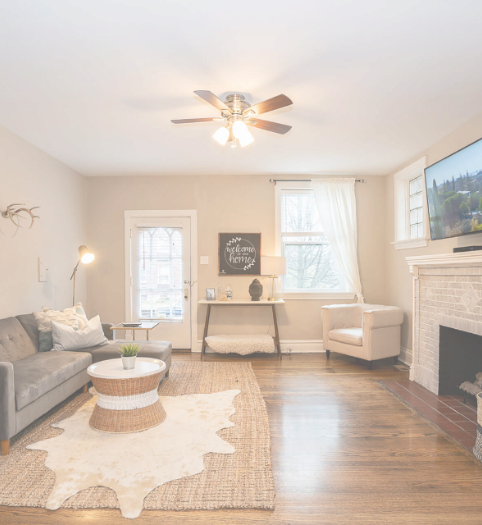Mortgage Loans for Investment Properties
In this blog post, we’re going to take a look at the different types of mortgage loans for investment properties. While many are the same or similar to the loan you take out for your principal residence, there are differences.
So, you’ve decided to purchase an investment property. Great!
Do you have cash in hand? If not, how are you going to finance it?
There are actually many options to finance your investment property. But there are also more stringent guidelines than for a primary residence. Because investors can easily walk away from an investment property, lenders assume a bigger risk with financing these properties.
To mitigate that risk further, lenders impose a variety of rules that govern the lending of investment property monies. Some of these include:
- Higher down payment, typically a minimum of 20%.
- Higher interest rates and fees.
- Cash reserves for 6 months of mortgage payments
- Property must be a single-family home, small multi-family home, townhome, or condominium
Let’s examine the different types of mortgage loans for investment properties.
Conventional Loan
Also called “conforming loans”, this type of mortgage loan for investment properties is offered by traditional lenders, such as banks and mortgage brokers. While these types of loans typically offer a lower interest rate and fees, down payments are typically between 15% and 25%. They are guaranteed by either Fannie Mae (FNMA) or Freddie Mac (FHLMC) and must meet Government Sponsored Enterprise (GSE) guidelines.
FHA Multi-Unit Financing
With this type of mortgage loan for investment properties, the borrower must live in one of the units for a minimum of one year and may use the existing rental income to help qualify for the loan. This is a good loan product for new purchases or properties that need substantial rehabilitation. It is backed by the FHA and offered by traditional lenders and mortgage brokers. Its down payment and credit score requirements are more lenient than conventional loans.
VA Multi-Unit Financing
Also offered by mortgage brokers and traditional lenders, this type of financing option is only available to active-duty service members, veterans, and eligible spouses and is backed by the US Department of Veterans Affairs (VA). It has no minimum downpayment or credit score restrictions and may be used to purchase up to 7 units. The borrower must live in one of the units.
Blanket Mortgage Loans
Under this type of mortgage loan for investment properties, borrowers are able to finance multiple properties under one loan. Offered by private lenders and mortgage brokers, this product has varied downpayment, credit scores, interest rate, and loan terms based on the lender and the properties being mortgaged. There are a few interesting differences between the Blanket Mortgage Loan and the other we’ve discussed so far:
- With a Blanket Mortgage loan, the properties covered under the loan are “cross-collateralized”, meaning each property serves as collateral for the others
- It is possible to refinance existing separate mortgage loans under one Blanket Mortgage
- It is possible to negotiate a “release” clause, which allows the borrower to sell just one (or more) of the properties covered under the loan
Portfolio Loans
This type of loan could be considered “creative financing”. Offered by private lenders and mortgage brokers, it is used to finance single or multiple investment properties with the same lender. The downpayment, credit score, interest rate, and loan terms can be customized at the discretion of the lender to fit the needs of the buyer. However, less stringest terms comes at the cost of higher fees and prepayment penalties. Lender may also choose to offer financing using only a short-term loan product, and stipulate that a balloon payment for the entire loan is due at the end of the loan term.
Private Money Loans
As its name implies, private money mortgage loans for investment properties are mortgage funds loaned by private investors or groups. Loan terms may be customized per the borrower’s individual needs, which makes this a good source for future funding based on assets’ current performance. Some borrowers ask for a “piece of the action” in exchange for a lower interest rate or better terms.
HELOC and Home Equity Loans
This is not a traditional mortgage loan, but rather tapping into the equity you’ve already accumulated in your existing property. Your lender will typically lend about 80% of the property’s equity. This is a type of second mortgage, with funds paid in a lump sum. Repayment made in monthly payments at fixed rate of interest.
Seller Financing
This final type of mortgage loan for investment properties is also called seller carryback, owner financing, or a purchase-money mortgage. In this scenario, the original owner already owns the property free of any loans, acts as the lender for the buyer and “finances” the sale of the property. This is an excellent way to finance a property that will not qualify for traditional financing or in a market downturn. It offers nearly endless flexibility and can be easily customized to meet the needs of the seller and buyer. This option is also occasionally used by sellers as a way to capital gains as an alternative to conducting a 1031 tax-deferred exchange.
In the next post in this series, we’ll be discussing more unconventional and creative ways to finance your investment property. Stay tuned!
I hope this overview of 8 popular products for mortgage loans for investment properties gives you an informative overview of what’s out there and gets you thinking about what might be the best vehicle for you in your future investing.
As always, please feel free to reach out if you have any questions. Thanks for reading!




